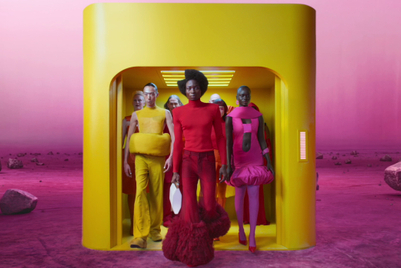
Climate change, coronavirus, the falling economy and the current civil unrest are all a product of "shareholder capitalism", Droga5 London chief strategy officer Dylan Williams declared during Campaign Connect.
Speaking as part of a panel on sustainability, Williams said: "In less than 12 months, we’ve seen the Amazon aflame, Britain flood, cars in Milan melt, schoolchildren of the world strike for climate, Australia aflame, a global pandemic, economic collapse and now America teetering on the brink of civil war.
"This situation is clearly unsustainable, and whilst in economics classes we would once have called all these phenomena exogenous shocks, the truth is they are anything but—they are caused by the system. All of this is in the economic model we market in our communications service.
"Shareholder capitalism isn’t proving particularly good at fostering a long-sighted and healthy relationship between people and the planet we all share."
That said, in spite of cynicism over greenwashing, Williams argued that "people haven’t gone off brands" as society looks forward to a more sustainable future.
According to research from Edelman, 74% of people in eight of the major markets surveyed would prefer chief executives to lead change rather than wait for governments to impose it, while 73% of millennials said they would pay more for sustainable products.
Hailing 2020 as a "tipping point of history", Williams encouraged brands to align their purposes with "ethical transformation" via short-term, achievable goals: "The new opportunity for brands is to really lean in to the age of transparency, recognise that everything is now communication and that everything that happens in the supply chain says as much about a brand as what we put into our commercial message."
This is the approach adopted by Coca-Cola, which is currently 88% of the way towards its goal of using entirely recyclable materials by 2020.
However, in order to tackle what he referred to as "the new abnormal", Javier Meza, global chief marketing officer of sparkling at Coca-Cola, has opted to prioritise efforts surrounding the coronavirus pandemic currently.
"Today’s expectation is to do something to help with the pandemic and that is how we have been reacting," Meza told Campaign global editor-in-chief Claire Beale, who was chairing the panel session.
While Grey Europe president and chief executive Eduardo Maruri believes it is the role of industry leaders to "align with the sustainability agenda"—claiming that we are past the point of stock footage of plastic in the ocean—Coca-Cola has removed TV advertising for one month, with $100m (£79m) donated to Covid-19 relief via the International Red Cross and Red Crescent Movement.
Meza also pointed to brand partnerships as a way to move forward through the pandemic, with Coca-Cola partnering competitors to reopen grocery stores around the world amid consumer concerns surrounding "safety, quality and convenience".
‘World War C’
March saw the United Nations launch its first-ever "open brief to creatives everywhere" in an attempt to prevent the spread of misinformation surrounding Covid-19.
With thousands of submissions from individuals, companies and brands across 143 countries, Dawda Jobarteh, global head of the the sustainable development goal strategy hub at the UN, hopes that it won't take too long to regain any losses in progress surrounding sustainability, prompted by what he refers to as "World War C".
He said: "Covid-19 has set us back decades and faced us with a false choice between life and livelihood.
"It’s struck us like a sack of bricks—it’s paused economies, it’s grounded people, it’s locked people up in their houses, it’s turned on a multitude of screens like never before and paused religion in a lot of ways in terms of people being able to congregate.
"Where there were cracks, there are now canyons,"
While 2020 was once labelled by Jobarteh as "the beginning of the decade of action", he believes purpose-led consumers are more willing to hold brands accountable for their carbon footprint.
"We’re at the crossroads where we collectively as a society can choose where we want to go and figure out the roadmaps to get us to where we need to go," Jobarteh added.
Holding on to one particular roadmap, Kate Robertson, co-founder of One Young World, maintains that industry-wide transparency is the "silver bullet" in adland’s journey towards goal-oriented sustainability.
"This is a moment when we need businesses around the world, particularly global businesses, to hold the human family together," Robertson declared.
"Businesses can choose to play this as one world to force weak leaders of government who are trying to divide us when we are completely interdependent."


.jpg&h=334&w=500&q=100&v=20170226&c=1)
.jpg&h=334&w=500&q=100&v=20170226&c=1)
.jpg&h=334&w=500&q=100&v=20170226&c=1)





.jpg&h=334&w=500&q=100&v=20170226&c=1)
.jpg&h=334&w=500&q=100&v=20170226&c=1)
.png&h=268&w=401&q=100&v=20170226&c=1)
.png&h=268&w=401&q=100&v=20170226&c=1)


.jpg&h=268&w=401&q=100&v=20170226&c=1)


